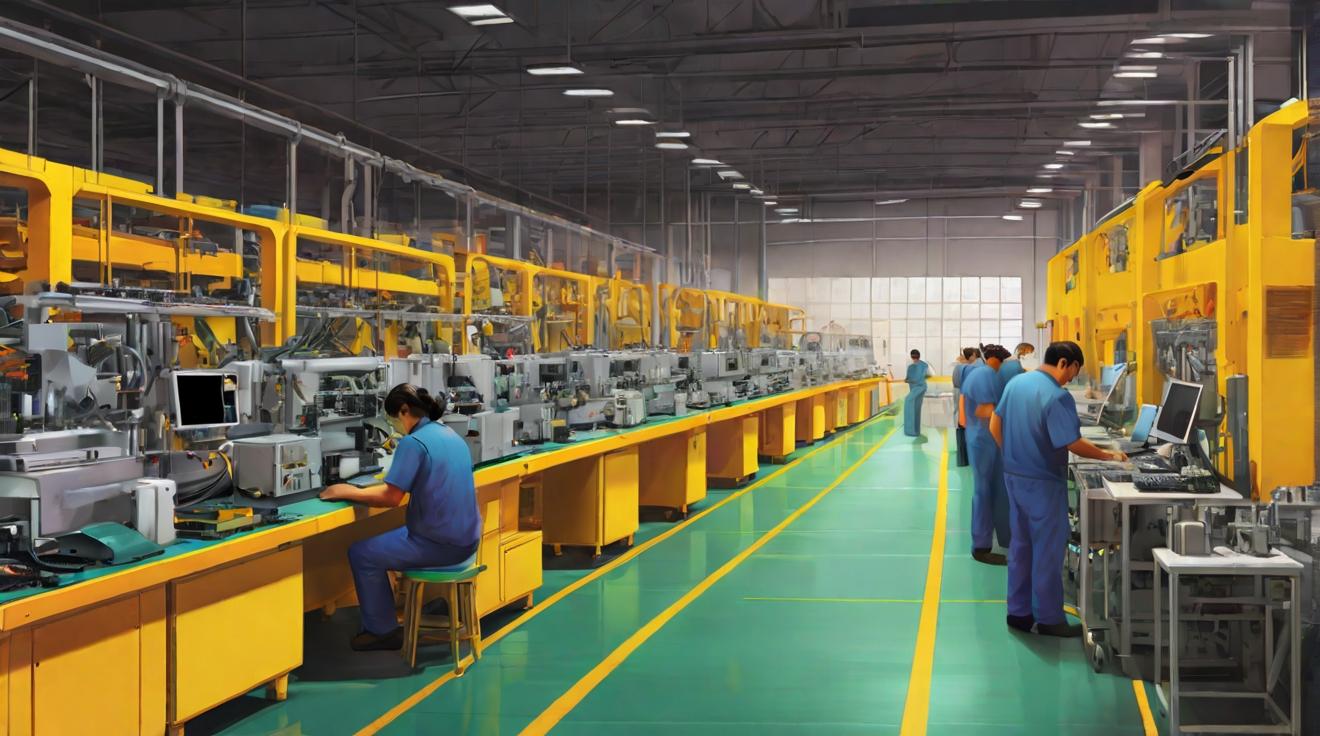Will AI Transform Mexico into the Next Manufacturing Powerhouse?
In a strategic pivot reminiscent of the iPhone revolution, the United States is looking towards Mexico to bolster its AI hardware production, marking a significant shift away from China's manufacturing hegemony. This move could potentially redefine North America's role in the global tech landscape, leveraging the US-Mexico-Canada Agreement (USMCA) to reposition Mexico as a central hub for technology manufacturing.
The Tech Exodus: From China to Mexico
Amidst growing tensions and an increasing emphasis on protectionist policies, US tech giants are exploring new frontiers for their manufacturing needs, with Mexico emerging as a frontrunner. The USMCA, a landmark free trade agreement signed in 2020, is offering a lucrative policy framework that makes Mexico an irresistible choice for relocating production facilities, particularly for AI hardware.
As the world stands on the brink of the AI era, the significance of this strategic shift is palpable. Hewlett Packard Enterprise and Dell are already making moves, having requested several suppliers to transition part of their cloud computing production to Mexican soil. Taiwan-based Foxconn, a global leader in tech manufacturing, has also thrown its weight behind Mexico, investing $690 million over four years and producing AI servers for behemoths like Nvidia, Google, and Amazon within the country.
Unpacking the Economic Ripple Effects
This burgeoning partnership has seen two-way trade between Mexico and Taiwan soar, exceeding $15 billion last year as confirmed by the Mexican government. Mexico's ascent in the manufacturing domain has been meteoric, with the country accounting for over 15% of US imports last year and surpassing China in the process—a staggering turnaround from 2015 when China dominated with a 21.5% share.
A New Manufacturing Epoch
The interplay of geopolitics and trade policies is crafting a new narrative for global manufacturing, with Mexico at its heart. As US firms look to declutter their supply chains from geopolitical risks and align themselves with more strategically located manufacturing bases, Mexico's importance in the North American economy is unequivocally on the rise.
In the face of these changes, China, under President Xi Jinping, is countering with a diplomatic charm offensive, courting US business leaders in a bid to sustain its investment allure. Nevertheless, the momentum appears to be firmly with Mexico, as it gears up to potentially mirror the transformative impact the iPhone had on China, but this time, in propelling the AI hardware sector to new heights.
The strategic decoupling from China and reorientation towards Mexico heralds a new chapter in global manufacturing, underscored by technological advancements and reshaped by contemporary trade agreements. As the AI revolution marches forward, Mexico's role as a pivotal manufacturing nexus is set to redefine North American economic dynamics, fostering a new age of technological and manufacturing prosperity.
This transition to Mexico not only underscores a strategic diversification of production bases but also highlights the broader implications of geopolitical tensions on global supply chains. The increasing reliance on Mexico for critical AI hardware underscores the urgent need for closer collaboration across North American borders, spelling out a future where technology and trade policies intersect more seamlessly than ever before.
Analyst comment
Positive news: The strategic shift towards Mexico for AI hardware production is seen as a positive move that could transform Mexico into a manufacturing powerhouse. This transition presents opportunities for Mexico to become a central hub for technology manufacturing and reshape North America’s role in the global tech landscape. The partnership between US firms and Mexico has already led to a significant increase in two-way trade and Mexico’s ascent in the manufacturing domain. This shift also highlights the need for closer collaboration and seamless intersection between technology and trade policies. Overall, this news suggests a prosperous future for Mexico’s manufacturing sector in the AI era.













